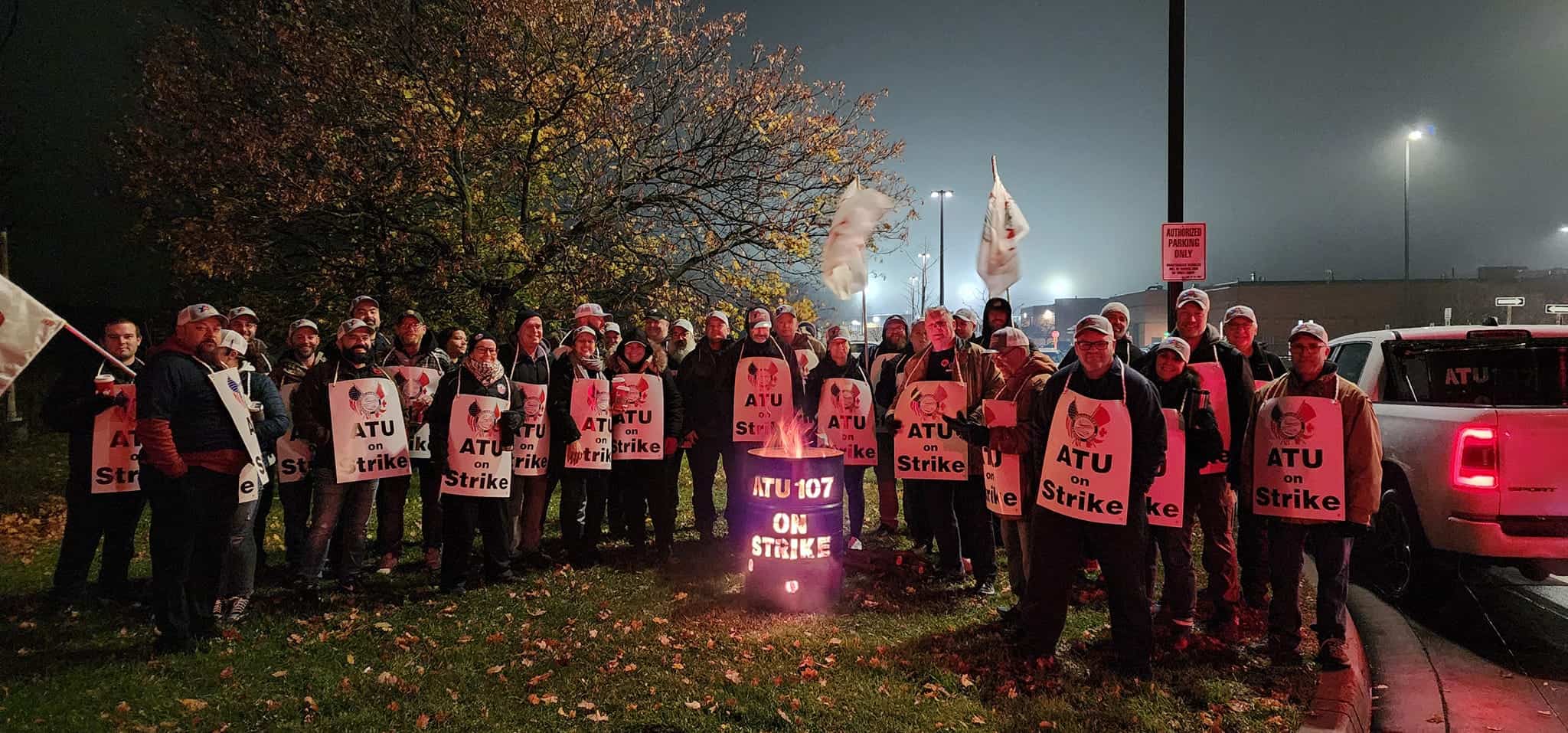Hamilton responds to transit union’s complaints about work conditions, HR exec’s salary hike
Published November 10, 2023 at 6:38 pm

In response to criticism from the head of the transit union about difficult working conditions, the City of Hamilton says its bargaining team is ready to discuss issues the transit union wants to raise but so far the union is not willing to meet again unless it has an enhanced financial package to offer.
More than 800 Hamilton Street Railway workers began their strike Thursday (Nov. 9), suspending all bus operations. Accessible transportation services offered by the contractor DARTS aren’t affected.
The City said it was firm on its final offer on wage increases and won’t change it because it believes it is “reasonable” and fair for all employees and doesn’t want to worsen the financial burdens on Hamiltonians.
In a press conference Thursday (Nov. 9), Eric Tuck, head of the Amalgamated Transit Union (ATU) Local 107, said Hamilton Street Railway workers are still fighting to have better working conditions, including five minutes to stretch or grab a bite to eat and gain access to washrooms.
“We don’t get meal breaks, we don’t have standard eight-hour days,” Tuck explained. “Many work 10 to 12 hours a day to make that eight hours’ pay. That’s what transit workers do. But what we really do best is we show up every day to make sure that we keep these cities moving.”
In an email to hamilton.insauga.com today (Nov. 10), the City said it had committed to installing private washrooms at specific locations on bus routes during 2019 negotiations. So far 16 private washrooms were done and five more “are in progress.”
Nine portable units have been installed until permanent units can be added, the City added.
“The City takes washroom access for Operators seriously and recognizes it’s a unique challenge for certain mobile jobs at the City,” said spokesperson James Berry in an email. “After the 2019 agreement was finalized, HSR has put a tremendous amount of work into increasing access to washrooms, although there were some delays due to the pandemic and utility services.”
Along with the washroom additions, Berry said the City modified routes to allow more operators to access the private facilities.
Thirteen terminals have washrooms for operators, including the Hunter Go Station, Frank A. Cooke Terminal and Mountain Transit Centre.
The City also has financial agreements with an extra 29 vendors throughout the city to allow washroom access for operators, he added.
“Despite these efforts, the Union filed grievances in 2022 claiming the City was violating the language in the collective agreement,” Berry said.
On Nov. 6, the timeline was extended to install the remaining private washrooms and increase the cleaning schedule following three days of mediation.
‘No Operator is driving a full 8 hours without breaks and lunches,’ City says
The City said all shifts are paid a guarantee of eight hours, generally from 7.5 hours to 9 hours.
Overtime is automatic after eight hours at time and a half or greater, depending on the length of the shift, it said.
Operators generally work about eight to 8.5 hours a shift, not including recovery time.
Recovery time is extra time allotted to allow the bus to maintain its schedule if it’s running late and allow the operator a chance to eat, drink, stretch or use the washroom, Berry said.
“Each loop on a route has scheduled recovery time. No Operator is driving a full 8 hours without breaks and lunches.”
For an eight-hour driving shift, 82 per cent of the shift will be spent driving and 18 per cent of it is scheduled as recovery time. In this example, it means 480 paid minutes of work and 86 minutes of paid recovery time.
“This exceeds the ESA (Employment Standards Act) requirements for paid breaks and lunches that an office worker would receive,” Berry said.
During Thursday’s press conference, Tuck, head of the transit union, also mentioned the salary increase for Lora Fontana, Hamilton’s executive director of human resources. Fontana saw her salary rise by nearly $19,000 over the last four years, according to the Ontario Sunshine List. She made $212,016.91 in 2022. “So who’s the greedy ones? We’re not the greedy ones,” he said.
Hamilton Mayor Andrea Horwath pointed out that Fontana’s raise was about nine per cent. She said that’s less than the 12.75-per-cent wage increase over four years the City offered to transit workers and far less than the 23-per-cent increase over four years that Tuck requested for his members.
“It is unfortunate that the union president is directing public anger at an individual female employee of the City of Hamilton,” Horwath said in a statement to hamilton.insauga.com today (Nov. 10). “As leaders, we should be able to discuss these important issues without stoking anger, hatred or resentment. All of the city’s wages are governed by policies and collective agreements, and individual employees should not be singled out for attacks as we treat all our employees fairly and with respect.”
INthehammer's Editorial Standards and Policies




